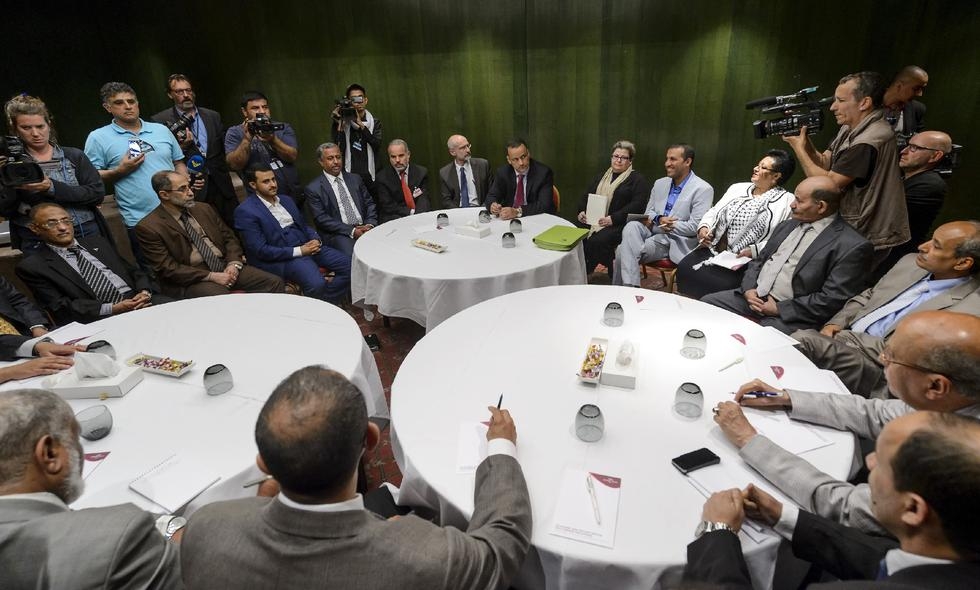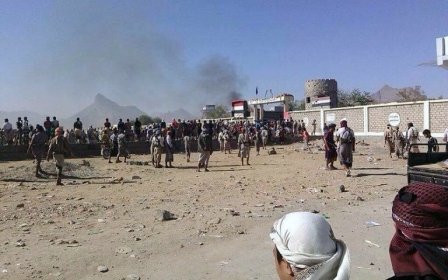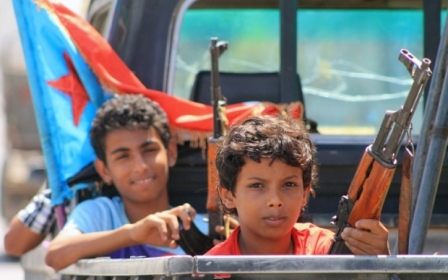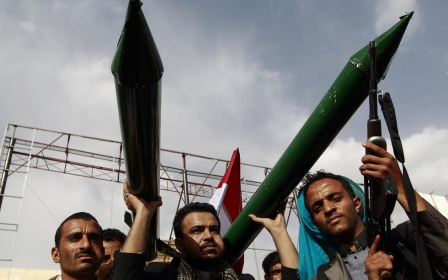Yemen talks 'an opportunity that must not be wasted': UN envoy

GENEVA - The UN envoy to Yemen has said that finding a ceasefire is a priority during crunch peace talks in the Swiss city of Geneva.
Ismail Ould Cheikh Ahmed told reporters in Geneva on Tuesday night that all parties to the dialogue had agreed to the founding principles of the peace talks, which include a UN resolution calling for an end to violence in Yemen.
Ahmed stressed that the attendance of delegates from all sides in the drawn-out conflict was a “real opportunity that must not be wasted”.
Despite the envoy’s positive tone, the Houthi leader hit out at the Yemeni government, which has been operating in exile from Saudi Arabia since his fighters seized control of much of the country earlier this year.
Abdulmalek al-Houthi, leader of a Yemeni rebel group that bears his name, accused the exiled government on Tuesday night of attempting to strong-arm the UN into accepting its own agenda at the peace talks.
"They tried to impose their own agenda," said the leader, in a speech broadcast on the Houthi-owned al-Masirah television channel, accusing the Yemeni government of using the UN and its envoy to Yemen as a "tool".
"Leave to the United Nations some neutrality to continue its mission ... Stop your continuous attempts to control its new envoy," said Houthi.
The rebel delegation had delayed its departure from Sanaa on Sunday over differences with the UN about formalities linked to the talks, which opened on Monday, a day later than scheduled.
In his speech, the Houthi leader, who is subject to UN sanctions, accused the government of "undermining the importance" of the Geneva meeting by calling it "consultative and not a serious dialogue aimed at reaching a solution ... even though nothing is preventing a political solution" in the country.
Exiled President Abd Rabbuh Mansour Hadi reiterated on Tuesday that his government would only discuss a Security Council resolution ordering their withdrawal from seized territory.
Houthi, in reply, said the government is "seeking to hamper any serious ... outcomes that could resolve the country's political situation. They want chaos."
The Houthis, fighting alongside troops loyal to former president Ali Abdullah Saleh, seized Sanaa in September and later expanded across the country, battling Hadi's supporters.
In March, Saudi Arabia formed an Arab coalition to launch airstrikes against the rebels as Hadi sought refuge in Riyadh.
Houthi again criticised the "Saudi regime's ... unjustified aggression", describing it as part of a "trio of evil" implementing the orders of the "United States and Israel".
A Houthi delegation held talks earlier this month with US diplomats in neighbouring neutral Oman.
He warned the kingdom that "this aggression ... will push many (Yemenis) to join the battlefield".
The conflict in Yemen has so far left more than 2,500 people dead since it began in March.
New MEE newsletter: Jerusalem Dispatch
Sign up to get the latest insights and analysis on Israel-Palestine, alongside Turkey Unpacked and other MEE newsletters
Middle East Eye delivers independent and unrivalled coverage and analysis of the Middle East, North Africa and beyond. To learn more about republishing this content and the associated fees, please fill out this form. More about MEE can be found here.




